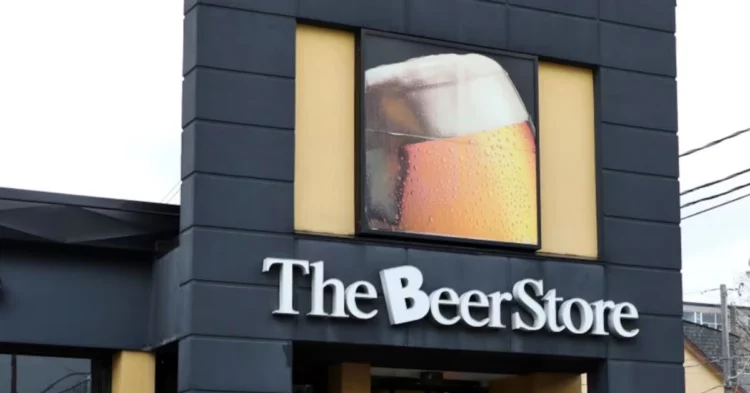As The Beer Store shutters more outlets across Ontario, concerns are rising over the future of the province’s bottle deposit and return program. With over 100 store closures expected by the end of this year—and more likely in 2026—consumers may soon have fewer options to return beer and wine containers, risking serious consequences for both the environment and vulnerable Ontarians who rely on the deposit refund system.
Table of Contents
The Growing Crisis: Where Will Ontarians Return Their Empties?
The Beer Store has long been the central hub for returning alcohol containers in Ontario. But with its steady decline, many are asking a troubling question: Where can people return their empties now?
John Knock, president of local 12R24 of the United Food and Commercial Workers (UFCW), which represents around 6,000 Beer Store employees, summed it up starkly:
“Where are those people going to get their money back? They’re not going to drive an hour to a Beer Store.”
The problem isn’t just one of inconvenience—it’s about access, sustainability, and public responsibility.
Environmental and Social Fallout from the Closures
1. Environmental Risks
If the bottle return infrastructure continues to shrink, the environmental toll could be massive. Last year alone, over 1.6 billion containers were returned through The Beer Store network. Without an accessible alternative, many of these could end up in landfills or as litter.
2. Impact on Low-Income Residents
For Ontarians like Sandy, a senior living in Toronto, returning bottles is more than a habit—it’s a vital source of income.
“By the time you pay your rent and other bills, I am lucky if I end up with $140 dollars for the month,” Sandy explained. “This is really helpful for us.”
The closure of nearby return locations could force individuals like Sandy to give up a crucial means of support.
Here are 10 Beer Store locations that just shut down across Ontario
More Places to Buy, Fewer Places to Return
The Beer Store’s monopoly over alcohol sales ended years ago. Today, grocery and convenience stores across Ontario can sell beer and wine. However, most do not accept returns, creating a major gap in the deposit return cycle.
That’s supposed to change on January 1, when a new regulation kicks in requiring grocery stores over 4,000 square feet to accept empties and return deposits as a condition of keeping their liquor licenses.
Retailers Pushing Back: Will They Comply?
Despite the upcoming legal requirement, many large retailers are resisting. In fact, some are openly considering pulling alcohol from their shelves to avoid the logistical hassle.
Michael Zabaneh, VP of sustainability at the Retail Council of Canada, speaking for Loblaws, Sobeys, and Metro, expressed the concerns of major grocers:
“Given the cost and operational complexities of managing alcohol returns, some retailers are reassessing whether it remains viable to continue selling alcohol.”
Retailers point to health and safety risks, space constraints, and the lack of infrastructure needed to handle large volumes of returned containers.
The Beer Store to Shut Down 12 Additional Locations Across Ontario Here’s Where
Enforcement Gaps and Weak Compliance
Even though about 70 grocery stores located more than five kilometres from a Beer Store were required to accept empties last year, very few actually comply. And so far, enforcement has been minimal.
This raises a key question: Will the January 1 rule have any teeth?
What the Government Is Saying
When asked whether the province would backtrack on requiring grocers to take returns, the Ontario Ministry of Finance didn’t give a direct answer. Instead, it emphasized its support for the Ontario Deposit Return Program (ODRP), stating:
“The ODRP supports high recovery rates, reduces litter, and helps to keep costs down for consumers.”
The government also reaffirmed that The Beer Store will continue operating the deposit return system until at least 2031, as part of a transitional agreement.
A Program at a Crossroads What Needs to Happen Now
As The Beer Store continues its drawdown, Ontario stands at a crossroads. Without clear enforcement, willing retailers, and accessible return points, the entire system risks collapse.
This isn’t just about beer bottles—it’s about sustainable waste management, environmental responsibility, and supporting vulnerable populations.
Unless swift, decisive action is taken, Ontario’s once-effective bottle return program may become a cautionary tale of how privatization and deregulation can unravel public good.

